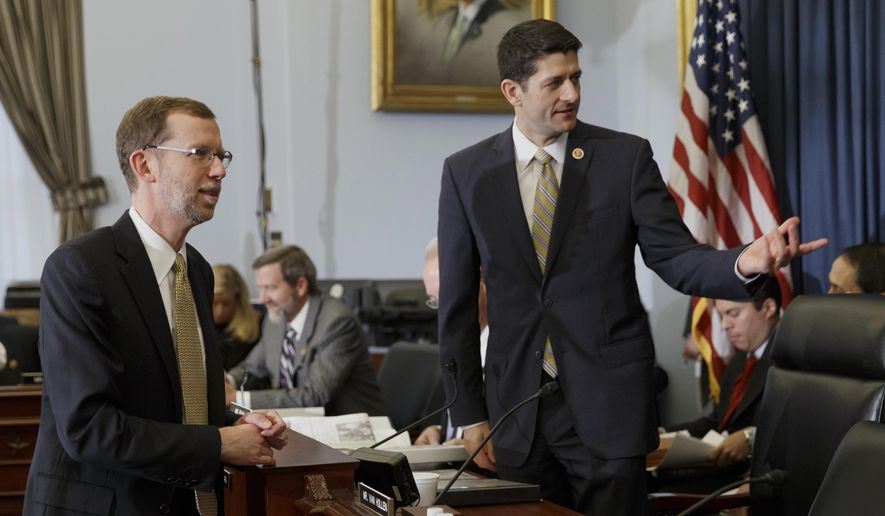Republicans announced last week they will not keep current chief congressional scorekeeper Douglas Elmendorf and will replace him with Keith Hall, an economist with a long record of service in Washington and deep ties to Republicans.
Mr. Hall will take over as the director of the Congressional Budget Office with a term extending into 2019.
He was chief economist to President George W. Bush, and has also been commissioner of the Bureau of Labor Statistics and chief economist at the Commerce Department.
“He brings great experience,” Rep. Tom Price, Georgia Republican and House Budget Committee chairman, told The Washington Times. “He was in President Bush’s council of economic advisers, he worked for the Commerce Department, Treasury Department, served as the commissioner of the Bureau of Labor Statistics, which is a huge organization that requires a great facility for not just dealing with the numbers, but also dealing with how to explain these sometimes difficult economic issues in ways that members of Congress are able to grasp, and sometimes that’s a challenge.”
Mr. Price made the decision along with Sen. Mike Enzi, Wyoming Republican and Senate Budget Committee chairman.
Ousting Mr. Elmendorf was a controversial move for the GOP, and has drawn criticism from Democrats and independent analysts who said he had handled a tough job well.
SEE ALSO: Congressional Budget Office feted, ‘dynamic scoring’ issue resurfaces
The CBO is the government’s official scorekeeper, calculating the budget costs of most bills that reach the floor of the House or Senate. Those numbers heavily influence whether bills can pass, and CBO scores have helped shape the outlines of Obamacare, immigration legislation and tax cuts.
The CBO celebrated its 40th anniversary earlier this week, where past directors from both parties praised Mr. Elmendorf for his even-handed approach to the job.
But Republicans had wanted to push the CBO to go further in the way it evaluates tax cuts by using so-called “dynamic scoring” to take into account the potential economic benefits loop that could stem from Americans paying less to the federal government after a tax cut.
Some Republicans also disliked the way his agency evaluated President Obama’s health law, showing that once all the tax increases were included, the legislation would reduce the deficit over the 10-year period that governs congressional laws.
As they ushered Mr. Elmendorf out the door, Republicans thanked him.
“Doug is widely respected on both sides of the aisle, and has always been a true class act,” House Speaker John A. Boehner said.
Mr. Boehner said Mr. Hall is “uniquely qualified” to run the CBO because of his breadth of expertise, which includes labor markets and regulatory policy.
But Sen. Bernard Sanders, a Vermont independent who serves as Democrats’ top lawmaker on the Senate Budget Committee, said while he looks forward to working with Mr. Hall, he suspects they will see things differently.
“He would not have been my first choice,” said Mr. Sanders, a self-identified socialist. “His opposition to increasing the minimum wage and his resistance to sound strategies for eliminating poverty place him outside the mainstream.”
Still, Mr. Sanders said he hoped Mr. Hall would abide by the CBO’s “40-year tradition of independent and objective budget analysis.”
Mr. Price said Mr. Hall is just part of the change the GOP wants to see. He said there’s a need to rewrite the 1974 Budge Act that established the CBO and set up the modern rules that govern the broad outlines of government finances, including the rules the CBO must use when evaluating bills’ costs.
“Oftentimes, the answers that we get from the Congressional Budget Office aren’t the answers that we think are the correct ones, but the reason for that oftentimes is the rules under which they have to function by law,” Mr. Price said.
• Stephen Dinan can be reached at sdinan@washingtontimes.com.
• David Sherfinski can be reached at dsherfinski@washingtontimes.com.




Please read our comment policy before commenting.